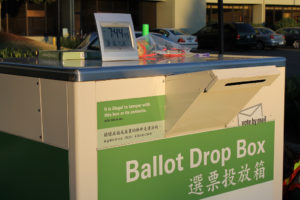Voters would see the cost of initiatives — and how the measure might lead to cuts in state programs and possible tax increases — on their ballots, under a bill heard Wednesday in a state House committee.

Senate Bill 5715 would require ballot titles for initiatives to include a statement of fiscal impact if the cost is $25 million or more. Ballots would include a sentence saying the initiative is “unfunded” and “other state spending may need to be reduced or taxes increased to implement to the proposal.”
Right now, fiscal impact statements for initiatives are included in the voter’s pamphlet. This bill would require the statement be placed directly on ballots, just above “yes” and “no” boxes.
The push comes after voters in November approved a measure to decrease class sizes statewide without a funding source, at a cost of $2 billion. The obligation is in addition to the state Supreme Court ruling that lawmakers must fully fund education.
Supporters, including prime sponsor Auburn Republican Sen. Joe Fain, say the bill lets voters know the true cost of the measures they’re considering.
“Voters deserve the full accounting of initiatives being proposed, whether they result in cuts to state government or investments,” League of Education Voters’ Frank Ordway told the committee.
But opponents, like initiative promoter Tim Eyman, say a fiscal statement in the title will unfairly influence voters against the measure. “For 101 years, the Attorney General has been required to write a neutral ballot title,” Eyman said. “This bill really does violate that neutrality law by injecting personal prejudice with a bias, vote-suppressing warning label on certain initiatives.”
Under current law, initiative sponsors can challenge language used in a ballot title in court if they think the title is unfair. The bill doesn’t address whether the fiscal impact is subject to judicial review, but under the current version of the bill, the fiscal statement would be added after the deadline to challenge the ballot title.
The bill passed 41-8 in the state Senate. No action was taken in the House State Government during Wednesday’s hearing. It has so far not been scheduled for a vote.